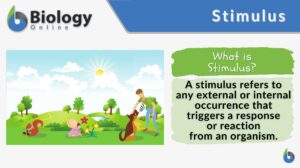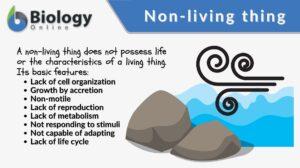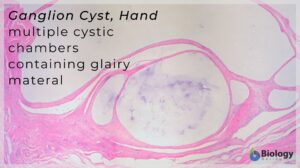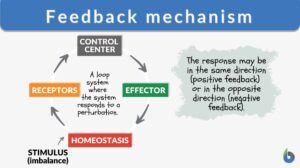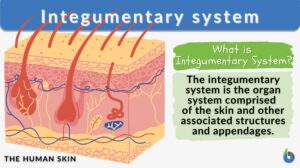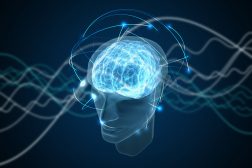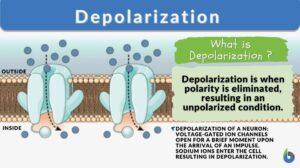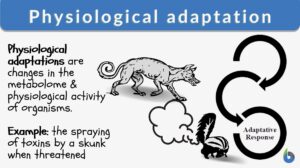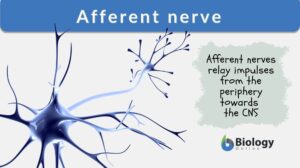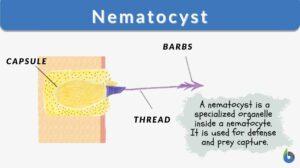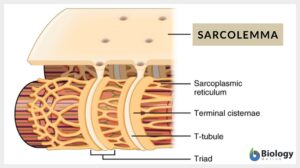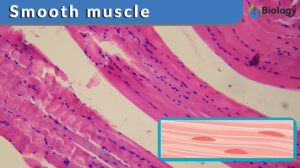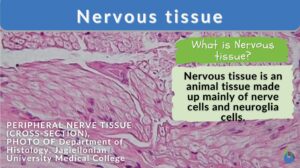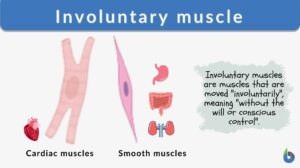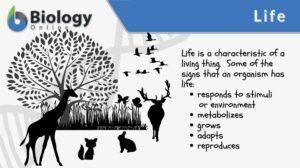Search Results for: stimuli
Unconditioned stimulus
An unconditioned stimulus inherently triggers an automatic response, not reliant on deliberate prior learning. In contrast... Read More
Summation of stimuli
Summation of stimuli cumulative muscular or neural effects produced by the frequent repetition of... Read More
Supraliminal stimulus
Definition noun, plural: supraliminal stimuli A stimulus above the threshold of sensation or of awareness Supplement In... Read More
Non-living thing
Non-living Thing Definition A non-living thing in biology means any form without a life, such as an inanimate body or... Read More
Living things
Living Things Definition A living thing pertains to any organism or a life form that possesses or shows the characteristics... Read More
Feedback mechanism
Feedback Mechanism Definition What is a feedback mechanism? A feedback mechanism is a physiological regulation system in a... Read More
Integumentary system
Integumentary System Definition The integumentary system is the outermost layer of the body. The animal body, in... Read More
Sensory Systems
A sensory system is a part of the nervous system consisting of sensory receptors that receive stimuli from the internal and... Read More
Homeostasis
Homeostasis is the tendency not to stray from the range of favorable or ideal internal conditions. Such conditions must be... Read More
Parthenogenesis
To reproduce, by definition, means to produce new offspring. The process is referred to as reproduction, which is one of the... Read More
Imprinting
What does imprinting mean? Have you watched the TV cartoon show “Tom and Jerry” with an episode of a duck and its... Read More
Consciousness and Behavior
States of Consciousness Defined either by (1) behavior - ranging from attentive and alert to coma and (2) electrical... Read More
Depolarization
Depolarization is the removal of polarity by a process or action. It might also be used to describe how such activity leads... Read More
Growth and Plant Hormones
Growth All living organisms begin in the same form: as a single cell. That cell will divide and the resulting cells will... Read More
Phosphorylation
Phosphorylation Definition We can define phosphorylation as a biochemical process in which a phosphate molecule is added to... Read More
Human Perception – Neurology
A better understanding of human perception unlocks the key to how the mind works, an advantage when working with people with... Read More
Physiological adaptation
If we look over evolutionary history, we find that it’s neither the most genius and intelligent nor the strongest and the... Read More
Sense Organs in Insects
By Sachin Chorge Article submitted on January 2008 Article accepted on February 2008 Senses are the... Read More
Afferent Nerve
Afferent Nerve Definition The word ‘aferent’ means "steering or conducting something towards a destination". The... Read More
Cell adhesion
Cell Adhesion Definition Cell adhesion is the process in which a cell uses a specialized complex of proteins to get... Read More
Mechanoreceptor
Definition noun, plural: mechanoreceptors A sensory receptor chiefly in the skin or in the body surface of an organism used... Read More
Nematocyst
All organisms are composed of millions of cells. Many cells serve specific purposes and are specialized to do distinct... Read More
Complete tetanus
Complete tetanus tetanus in which stimuli to a particular muscle are repeated so rapidly that decrease of tension between... Read More
All-Or-None-Law
A law stating that stimuli either produce a reaction or no reaction at all in particular circumstances, no matter how much... Read More
Sarcolemma
Sarcolemma Definition What is the sarcolemma? It is the thin, transparent, extensible plasma membrane of the muscle cell.... Read More
Chemoreceptor
Definition noun, plural: chemoreceptors (1) A sensory nerve cell or sense organ, as of smell, or taste, that are able to... Read More
Characteristic
Characteristics Definition We can define characteristics as qualities or features that describe the distinctive nature or... Read More
Smooth muscle
The smooth muscle can be described as a type of muscle in the human body that is non-striated and involuntary in action.... Read More
Nervous tissue
Nervous Tissue Definition Nerve cells (or neurons) and their associated cells, such as neuroglia cells, make up nervous... Read More
Involuntary muscle
A muscle act typically either under the control of the will or without conscious control. Muscles that can be controlled at... Read More
Hypoalgesia
Definition noun A decreased sensitivity to painful stimuli. Supplement Hypoalgesia is the decreased sensitivity to pain. It... Read More
Movement of Molecules Across Cell Membranes
Diffusion Diffusion is essentially the movement of molecules from a region of higher concentration to a region of lower... Read More

